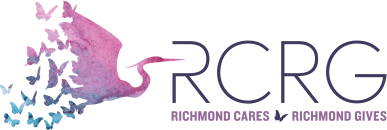-
 Volunteer Now
Volunteer Now -
 Community Giving
Community Giving -
 Member Organizations
Member Organizations -
 Community Foundation
Community Foundation -
 Training Centre
Training Centre -
 Services Directory
Services Directory -
 Events Calendar
Events Calendar -
 My RCRG
My RCRG


The community foundation movement is gaining momentum throughout the world, with Canada taking a leading role. In the past two decades alone, over 160 community foundations have been established in Canadian towns and cities, from the Pacific to the Atlantic, and even up north. In total, 89% of Canadians – about 28.5 million people – are served by a community foundation.
Whether you’re familiar with the work of community foundations or not, you probably have some questions. We’re here with answers. Welcome to Community Foundations 101.
A community foundation is a locally run foundation that builds and manages endowment funds to support charitable activities in its region. Each community foundation is autonomous and governed by a volunteer board of local community leaders. Community foundations exist in every province and one territory, and are linked and supported at the national level through their membership organization, Community Foundations of Canada.
The definition of a fund is an invested sum, whose income is devoted to a specific object. An endowment is defined as the “act of bestowing a permanent provision for support.” Together, the term endowment fund means “an invested sum of money which is permanently invested and whose income is devoted to a specific cause.”
Community foundations combine three main roles:
1) Endowment Building and Donor Services
Community foundations pool the charitable gifts of many donors to create permanent, income-earning endowment funds – a nest egg that will always be there to benefit the community.
2) Grantmaking
Community foundations use the income earned by invested funds to give grants to a wide range of community groups. The original investment is left to grow over time.
3) Community Convening and Leadership
Community foundations work with the entire community, bringing people together from all sectors to identify and address local issues.
Anybody – individuals, families, corporations, even other charities – can contribute to a community foundation
Individuals and families can establish an “Advised Fund” at a community foundation, instead of having to go to all the trouble and expense of setting up their own foundation. Some corporations rely on the expertise of community foundations to administer their corporate donation programs. Charities, meanwhile, often place their own endowment funds with community foundations in order to benefit from greater returns on their investments.
Community foundations themselves are not the object of most donors’ philanthropy, but are the vehicle by which donors can fulfill their charitable objectives. Through their grant making programs, community foundations are committed to seeding, nurturing, supporting, and strengthening the community. Grants are made to non-profit organizations recognized by the Canada Revenue Agency as registered charities.